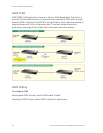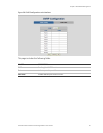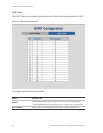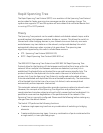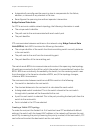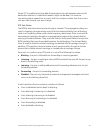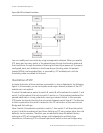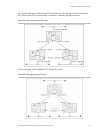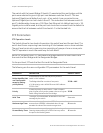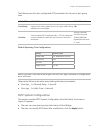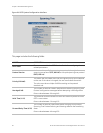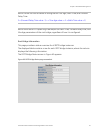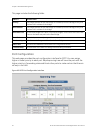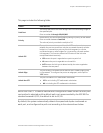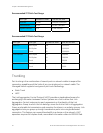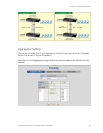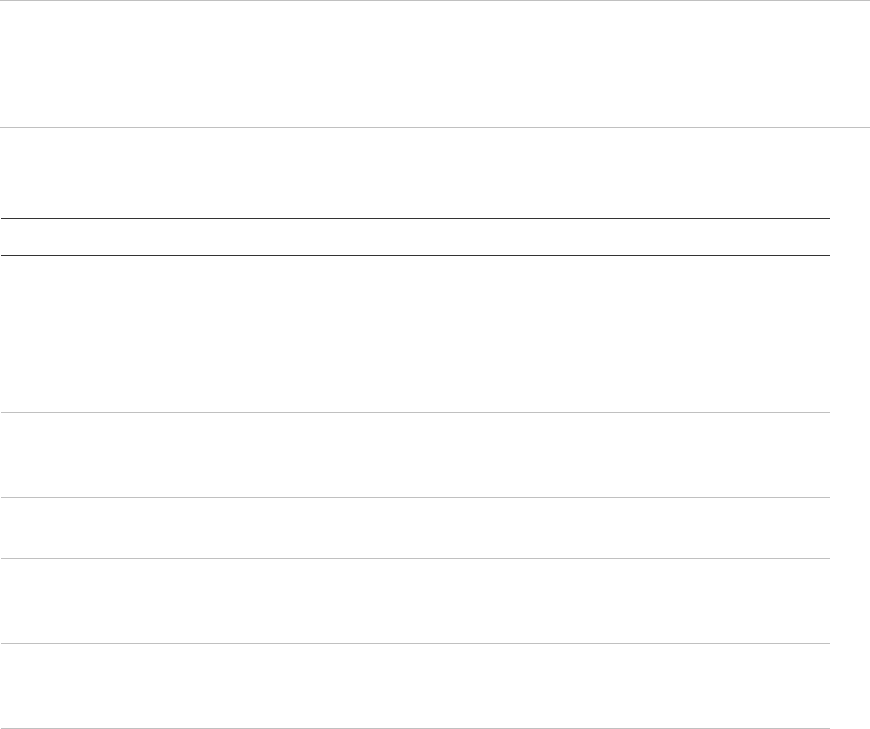
Chapter 4: Web-Based Management
88 GE-DS-82 and 82-PoE Ethernet Managed Switch User Manual
The switch with the lowest Bridge ID (switch C) was elected the root bridge, and the
ports were selected to give a high port cost between switches B and C. The two
(optional) Gigabit ports (default port cost = 4) on switch A are connected to one
(optional) Gigabit port on both switch B and C. The redundant link between switch B
and C is deliberately chosen as a 100 Mbps Fast Ethernet link (default port cost = 19).
Gigabit ports could be used, but the port cost should be increased from the default to
ensure that the link between switch B and switch C is the blocked link.
STP Parameters
STP Operation Levels
The Switch allows for two levels of operation: the switch level and the port level. The
switch level forms a spanning tree consisting of links between one or more switches.
The port level constructs a spanning tree consisting of groups of one or more ports.
The STP operates in much the same way for both levels.
NOTE: On the switch level, STP calculates the Bridge Identifier for each switch and
then sets the Root Bridge and the Designated Bridges.
On the port level, STP sets the Root Port and the Designated Ports.
The following are the user-configurable STP parameters for the switch level:
PARAMETER DESCRIPTION DEFAULT VALUE
Bridge Identifier (Not
user configurable
except by setting
priority below)
A combination of the User-set priority and the
switch's MAC address.
The Bridge Identifier consists of two parts:
a 16-bit priority and a 48-bit Ethernet MAC address
32768 + MAC.
32768 + MAC
Priority
A relative priority for each switch - lower numbers
give a higher priority and a greater chance of a given
switch being elected as the root bridge.
32768
Hello Time
The length of time between broadcasts of the hello
message by the switch.
2 seconds
Maximum Age Timer
Measures the age of a received BPDU for a port and
ensures that the BPDU is discarded when its age
exceeds the value of the maximum age timer.
20 seconds
Forward Delay Timer
The amount time spent by a port in the learning and
listening states waiting for a BPDU that may return
the port to the blocking state.
15 seconds



